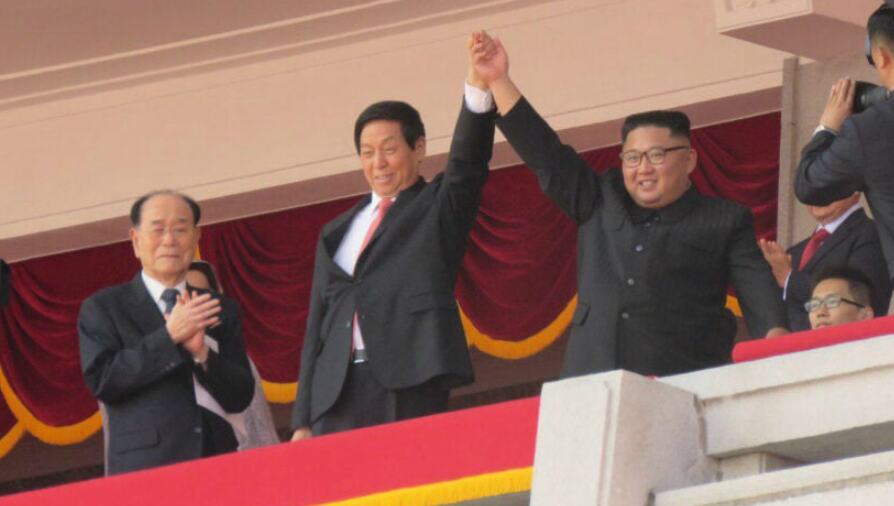North Korea Opens Its Doors: Russian and Chinese Delegations Break Pandemic Barriers for Historic 70th Anniversary Celebration
North Korea's 70th anniversary celebrations of the Korean War armistice will include Russian and Chinese delegations, marking a potential shift in its strict COVID-19 blockade policies and signaling enduring friendly relations. The presence of these delegations raises questions about North Korea's foreign policies and the ongoing complexities in the region.
A historic event is set to take place as North Korea invites foreign delegations to participate in the 70th anniversary celebrations of the 1953 armistice that ended the Korean War.
A Russian delegation led by Defence Minister Sergei Shoigu and a Chinese delegation headed by a member of the Chinese Communist Party will join in the festivities in Pyongyang. This marks the first time since the start of the pandemic that North Korea has welcomed foreign guests, demonstrating a potential shift in its strict coronavirus blockade policies.
The visit of the Russian delegation is seen as an opportunity to strengthen military ties between Russia and North Korea. The Russian Defence Ministry expressed that the visit will be an important milestone in the development of cooperation between the two countries.
Satellite imagery shows North Korea's preparations for a large-scale military parade, a customary feature of such anniversary celebrations. However, the inclusion of Russian and Chinese guests suggests a willingness to be more flexible in enforcing border controls.
These celebrations come at a time of heightened tensions in the region, with North Korea conducting multiple missile firings in response to US military exercises with South Korea. Since the beginning of 2022, North Korea has fired approximately 100 missiles, capitalizing on the distractions caused by Russia's conflict with Ukraine.
North Korea has expressed support for Russia in the Ukraine war, attributing Moscow's actions to the hegemonic policies of the US-led West. The US, in turn, has accused North Korea of providing military aid to Russia, although North Korea denies these claims.
China's presence at the anniversary celebrations is significant as well. Despite calls from the Group of Seven and the European Union for Beijing to enforce United Nations sanctions on North Korea, China maintains that it strictly implements these sanctions.
The extensive growth in China's exports to North Korea, which were eight times higher in June compared to the previous year, has raised concerns about potential evasion of sanctions. The visit of the Russian and Chinese delegations to North Korea underscores the enduring friendly relations between Russia, China, and North Korea, all of which have strained relationships with the United States.
Russia has been actively involved in brokering a deal on North Korea's nuclear weapons program, and both Russia and China have the potential to influence and encourage North Korea to refrain from threatening behavior and return to negotiations.
As North Korea commemorates the 70th anniversary of the armistice, known as the Great Fatherland Liberation War, the international presence at these celebrations signifies a possible shift in North Korea's foreign policies and highlights the ongoing complexities in the region.




